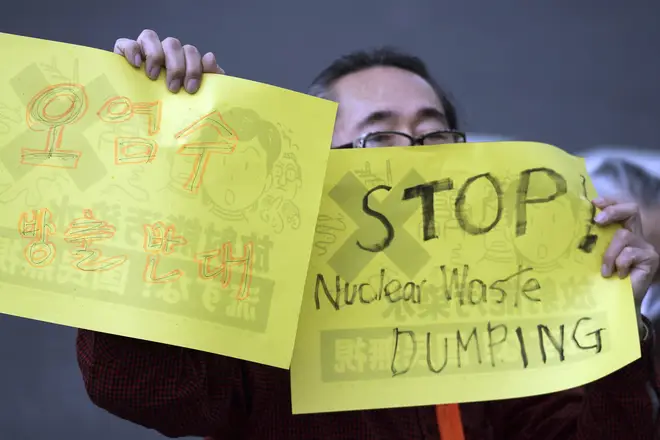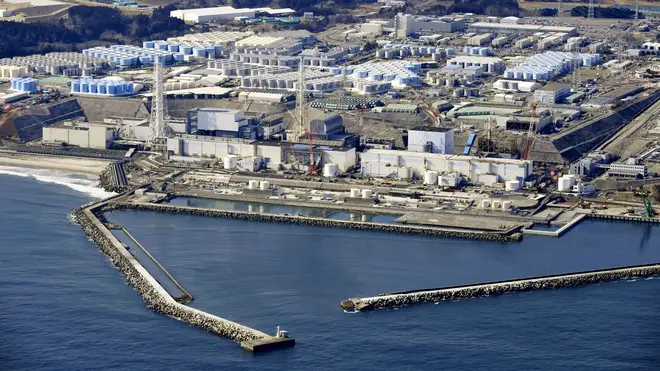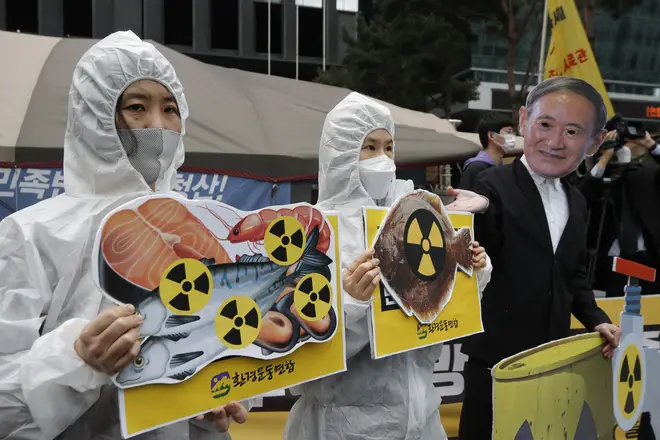
Ben Kentish 10pm - 1am
13 April 2021, 08:41 | Updated: 14 April 2021, 05:09

Japan has approved the release of more than one million tonnes of radioactive wastewater from the destroyed Fukushima nuclear plant into the Pacific Ocean.
Although the water will be treated and diluted to ensure its radiation levels are below those set for drinking water, the move has been fiercely opposed by local residents, fishing unions and international neighbours China and South Korea.
Beijing branded the decision "extremely irresponsible" and, along with Seoul, is asking for further consultation on the matter.
Leaders in nearby Taiwan have also expressed concern.
Meanwhile, the Japanese Government confirmed the work to release the radioactive wastewater will commence in two years.
Approval for the controversial method comes after years of debates, delays and protests over safety concerns.
However, Tokyo decided to endorse the move as it was the "most realistic" option.
Read more: International fans barred from Tokyo Olympics due to pandemic
Read more: Japan to pay families £295,000 if relative dies due to Covid jab

Following a meeting of Cabinet ministers, Prime Minister Yoshihide Suga said disposing of the water is "unavoidable" for the decommissioning of the Fukushima plant, which is expected to take decades.
The nuclear station was damaged during a massive earthquake and tsunami in 2011.
Water used to cool the plant's reactors became contaminated and began leaking after the natural disaster. It has since been stored in tanks at Fukushima.
The station's operator, Tokyo Electric Power Co (TEPCO), says its storage capacity will be full late next year.
Government officials and TEPCO said most selected radionuclides in the water can be reduced to levels allowed for the release.
However, they added that tritium, which is not harmful in small amounts, cannot be removed.
Read more: Tsunami warning issued as 7.2 magnitude earthquake hits Japan
Read more: Tokyo Olympics boss quits after 'inappropriate' comments about women

The government has said it will do what it can to support local fisheries and TEPCO will compensate for any damages that occur during its operation.
Some scientists say the long-term impact on marine life from low-dose exposure to such large volumes of wastewater is unknown.
Under the basic plan adopted by ministers, TEPCO will start releasing the water in about two years after building a facility under the regulatory authority's safety requirements.
It said the disposal of the water cannot be postponed further and is necessary to improve the environment surrounding the plant so residents can live there safely.
In the decade since the tsunami disaster, water meant to cool the nuclear material has constantly escaped from the damaged primary containment vessels into the basements of the reactor buildings.
To make up for the loss, more water has been pumped into the reactors to continue to cool the melted fuel.